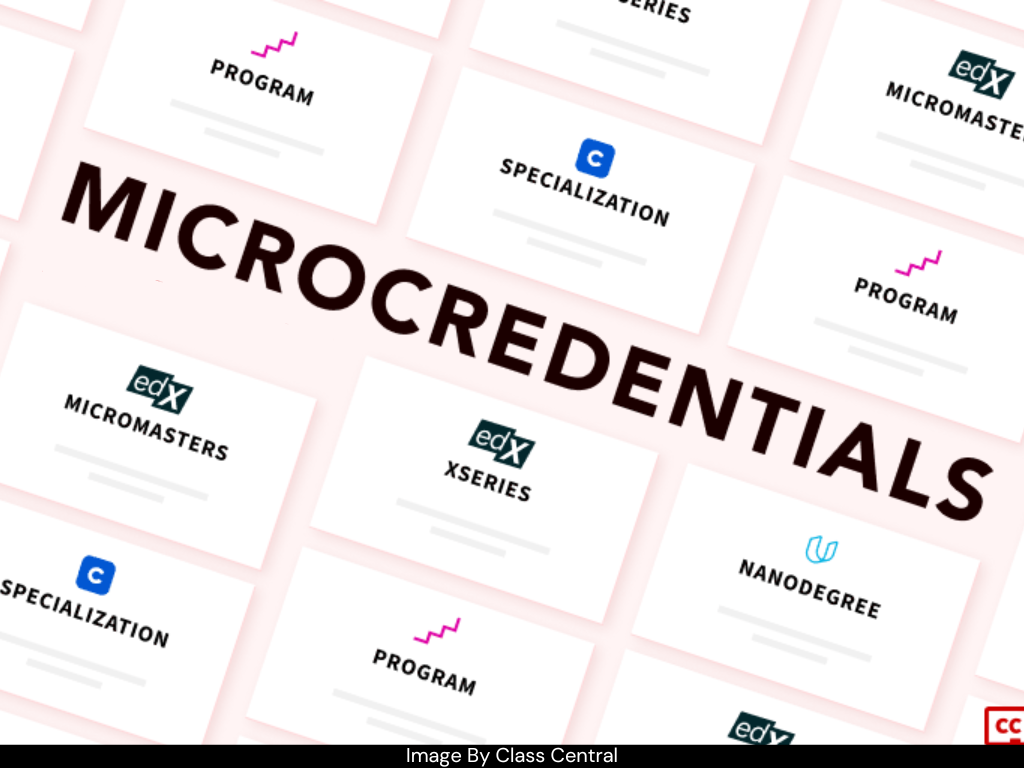The professional landscape in India is undergoing a dynamic shift. The days of linear career paths and lifelong employment with a single company are gradually fading. Today’s professionals face a rapidly evolving job market characterized by constant technological advancements and an ever-growing demand for specialized skills. In this dynamic environment, traditional approaches to professional development, such as lengthy degree programs or expensive certifications, are no longer always practical or efficient. Enter the rise of micro-credentials – bite-sized learning modules offering targeted skills and knowledge relevant to specific job roles or industry trends.
What are Micro-Credentials?
Micro-credentials are concise, focused learning experiences that validate an individual’s mastery of a specific skill or set of skills. These credentials can take various forms, including:
- Online Courses: Platforms like Coursera, edX, and Udemy offer a vast array of micro-credentials in diverse fields, from data analysis and digital marketing to project management and software development. These courses typically range from a few weeks to a few months in duration.
- Bootcamps: Intensive, immersive workshops that equip learners with practical skills in high-demand areas like coding, cybersecurity, or social media marketing. Bootcamps can last anywhere from a few weeks to a few months.
- Certifications: Industry-recognized certifications focused on specific software applications, methodologies, or technical skills. These programs often involve assessments to demonstrate competency in the designated area.
Why are Micro-Credentials Gaining Popularity?
Several factors contribute to the growing popularity of micro-credentials for professional development:
- Flexibility and Time Efficiency: Micro-credentials offer a flexible and time-efficient approach to upskilling or reskilling. Professionals can learn at their own pace, fitting learning modules into their busy schedules. This caters to working individuals who may not have the time or resources for a full-fledged degree program.
- Cost-Effectiveness: Compared to traditional degree programs, micro-credentials are often significantly more affordable. This allows individuals to invest in targeted learning without incurring substantial financial burdens.
- Focus on Specific Skills: Micro-credentials are laser-focused on specific skills relevant to current industry demands. This targeted approach allows professionals to bridge identified skill gaps and enhance their marketability in a specific area.
- Rapid Knowledge Acquisition: The short duration of micro-credentials makes them ideal for acquiring new skills quickly. This can be particularly beneficial for professionals seeking to stay abreast of the latest trends and technologies in their field.
- Stackable Credentials: Many micro-credentials are stackable, meaning they can be combined to demonstrate a broader range of skills and knowledge. This allows individuals to curate personalized learning pathways tailored to their specific career aspirations.
The Rise of Micro-Credential Platforms
The growing demand for micro-credentials has spurred the emergence of dedicated online learning platforms. These platforms aggregate micro-credentials from various providers, making it easier for learners to discover and enroll in relevant courses. Additionally, some universities and educational institutions are now offering micro-credentials as part of their continuing education programs.
Benefits for Employers and the Workforce
Micro-credentials offer a win-win situation for both employers and the workforce:
- Enhanced Employee Skills: Employers can leverage micro-credentials to upskill their existing workforce, closing skill gaps and improving overall productivity.
- Reduced Training Costs: Micro-credentials can be a cost-effective way for employers to provide targeted training to their employees compared to traditional training programs.
- Attracting Top Talent: Offering opportunities for continuous learning through micro-credentials can be a valuable tool for companies to attract and retain top talent in a competitive job market.
- Improved Career Mobility: By acquiring micro-credentials, employees can demonstrate their commitment to professional development and enhance their career mobility within their organization or across industries.
Challenges and Considerations
While micro-credentials offer a promising approach to professional development, some challenges need to be considered:
- Quality Assurance: The rapid growth of micro-credential providers necessitates a focus on quality assurance. Establishing accreditation and quality control measures is crucial to ensure the legitimacy and value of micro-credentials.
- Recognition by Employers: While the recognition of micro-credentials is growing, some employers may not yet fully understand their value. Increased awareness and collaboration between micro-credential providers and industry leaders are essential.
- Standardization and Stackability: The lack of standardized formats and stackability pathways for micro-credentials can pose challenges. Establishing industry-wide standards will be essential for ensuring the long-term viability of micro-credentials.
The Future of Micro-Credentials
The rise of micro-credentials signifies a paradigm shift in professional development. By providing flexible, targeted, and cost-effective learning opportunities, micro-credentials are empowering individuals to take ownership of their professional growth and adapt to the ever-changing needs of the workplace. As micro-credentials continue to evolve, several trends are likely to shape their future:
- Integration with Traditional Education: Universities and colleges are increasingly exploring ways to integrate micro-credentials into their curriculum. This could involve offering micro-credentials as standalone modules or allowing them to be credited towards degree programs.
- Focus on Micro-Degrees: Micro-degrees are emerging as a new credentialing option. These stackable micro-credentials provide a more comprehensive learning experience focused on a specific career path or skillset.
- Personalization and Customization: Learning platforms are likely to offer more personalized learning experiences, recommending micro-credentials based on individual career goals and skill gaps. Additionally, micro-credentials themselves may become more customizable, allowing learners to tailor their learning journey.
- Focus on Soft Skills: While technical skills remain important, the future of work necessitates a strong foundation in soft skills. Micro-credentials focused on communication, collaboration, problem-solving, and critical thinking are likely to gain prominence.
- Employer-Driven Micro-Credentials: Companies may begin developing their own micro-credentials, tailored to their specific needs and skill sets required for their workforce. This could involve partnering with learning platforms or developing in-house training programs resulting in micro-credentials.
Conclusion
The rise of micro-credentials represents a significant development in the landscape of professional development. By offering a flexible and accessible approach to learning, micro-credentials empower individuals to continuously upskill and reskill for success in the dynamic job market. As the format of micro-credentials continues to evolve and challenges like quality assurance are addressed, they have the potential to become a cornerstone of lifelong learning for a future-proof workforce. This shift towards micro-credentials signifies a move away from a one-size-fits-all approach to professional development and towards a more personalized and adaptable learning ecosystem. As technology and the nature of work continue to evolve, micro-credentials are well-positioned to play a crucial role in equipping individuals with the skills and knowledge necessary to thrive in the ever-changing world of work.


